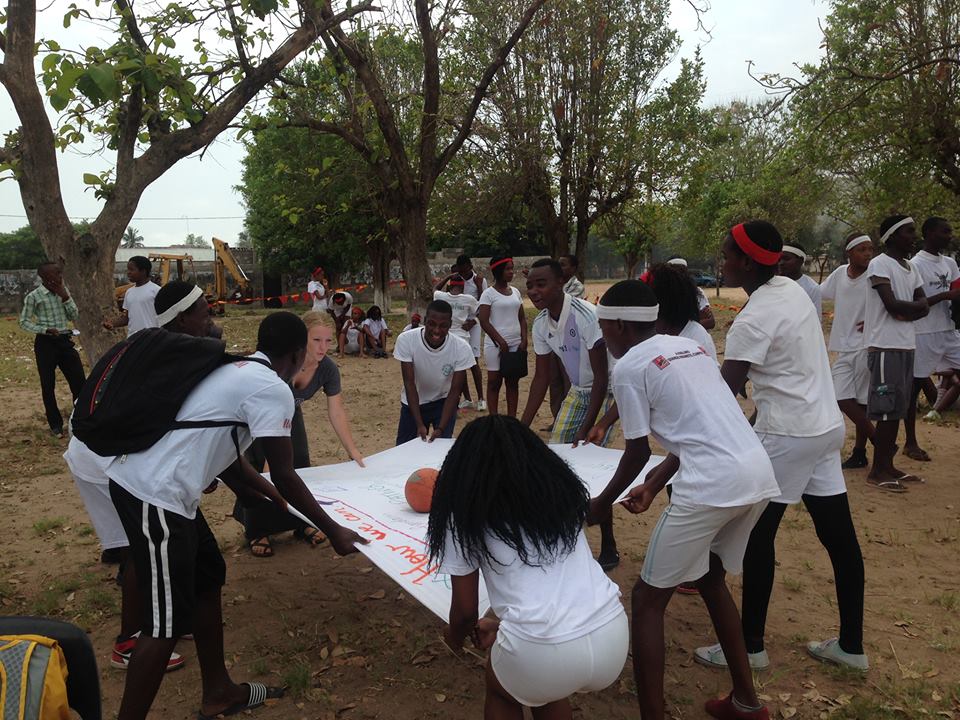
Alexandra Winters at swearing-in ceremony
A UW Bothell study abroad trip to Togo in 2014 helped Alexandra Winters understand the many challenges of international work.
“I gained on-the-ground experience of how a public health professional operates within a medical team,” she said. “During my Togolese summer, I learned that flexibility is central to being successful abroad. Despite the best of intentions, everything will not always go as planned.”
The lessons she learned as a student — flexibility, intercultural communication and community advocacy — also proved invaluable after graduating in health studies in 2014 and joining the Peace Corps.
Winters served from 2015 to 2017 as a health and organizational volunteer in Mozambique, Africa. She worked with a hospital to further AIDS testing, monitor antiretroviral compliance and strengthen patient support groups. She also worked with a youth group to promote positive behavior through art and cultural expression such as photojournalism, dance and theater.
“It was one of the most meaningful experiences of my two-year service.”

Alex Winters, left, ran into Aimee Desrochers at a conference.
As part of her work to fight malaria, she also attended a Stomp Out Malaria in Africa conference in Senegal where she ran into friend and Bothell alumna Aimee Desrochers. Like Winters, Desrochers had participated in the Togo trip, and she later served as a health volunteer in the west Africa nation.
After Mozambique, Winters became a Peace Corps volunteer in Ukraine with the U.S. President’s Emergency Plan for AIDS Relief. She is now working on interventions with vulnerable populations: injection drug users, sex workers and their children.
Malaria and HIV both illustrate how health can be complicated by other factors such as public assistance requirements, gaps in medical care, distance or economic disparities in accessing services, Winters says.

Anti-malaria group activity in Manhica, Mozambique
We know how HIV and malaria happen, and we know how to decrease their prevalence rates. So why are there such high rates in certain parts of the world? They are entrenched in cultural beliefs, stigma and discrimination,” Winters said.
This is why the ability to communicate well and empathize with others is so important in field work, she said, noting that “you may be the only American that your community has ever met.”
The situation also recalls another enduring lesson from her Togo trip — the realization that you cannot change some things.
“The wishes of community members must be respected to sustain valuable work,” Winters said. “There may be many possible public health interventions, but if the community does not also see these interventions as useful, you must focus your energies elsewhere.”
Winters says she is grateful for the professors she had at UW Bothell, especially the mentorship and guidance of Mabel Ezeonwu who selected Winters for the Togo trip. (Ezeonwu also led a nursing class to Guatemala in 2016.) Johanna Crane was also a mentor in research, which Winters wants to continue in graduate school studying health policy and global affairs after her Ukraine position ends later this year.
“The relationships I made at UW Bothell are a major reason I’ve been able to thrive in my career,” Winters said. “Without their support, I wouldn’t be where I am now.”



